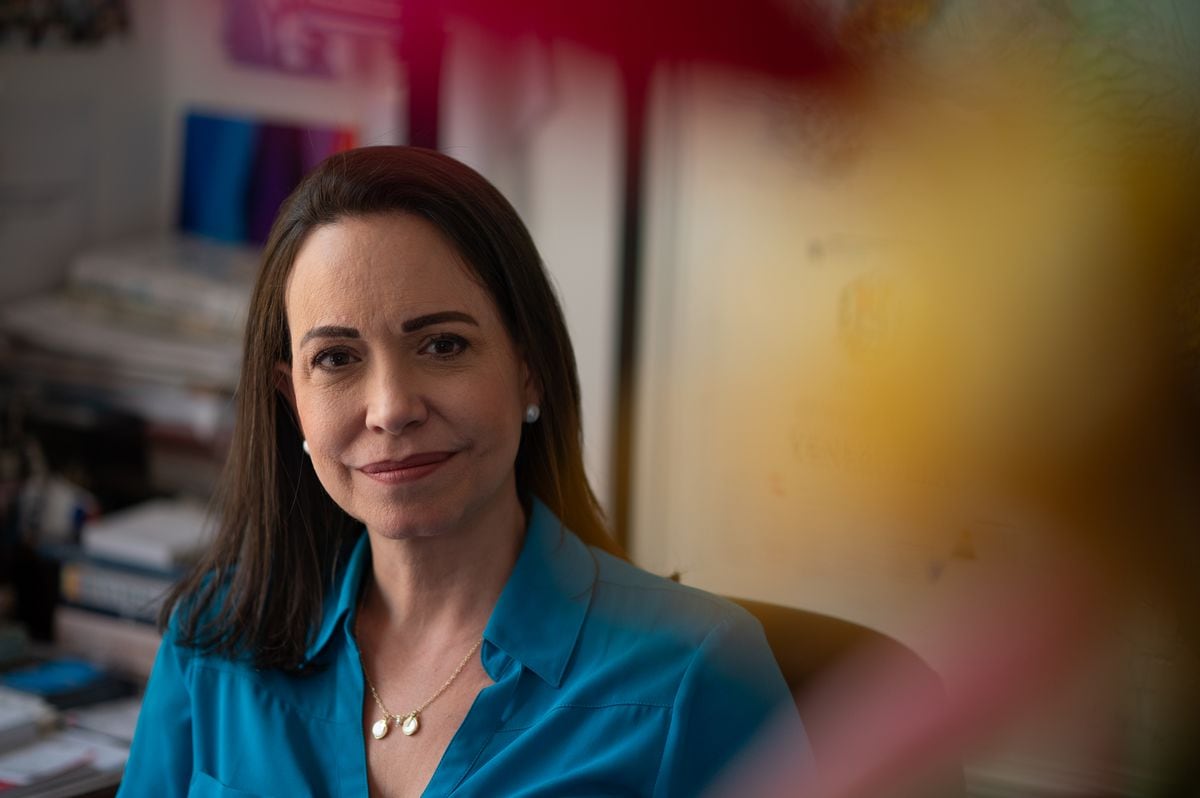Title: Maduro Government Disqualifies Opposition Pre-Candidate, María Corina Machado, as Venezuela’s Political Climate Heats Up
Introduction:
The Venezuelan government, led by President Nicolás Maduro, has taken a predictable yet controversial step by disqualifying opposition pre-candidate María Corina Machado. As the first choice to win the opposition primaries for the presidential candidacy, Machado has capitalised on the exhaustion felt by many Venezuelans. However, while Maduro’s actions may be expected, it remains unclear if his opponents have a strategic plan to effectively confront his regime.
Growth of Machado’s Support:
María Corina Machado’s popularity stems from the weariness people feel towards the country’s political class. Venezuelans are reminded of the pre-electoral climate in 1997 when the party system began to break down, eventually leading to the rise of anti-establishment candidate Hugo Chávez. Machado has gained significant traction, capitalizing on the economic problems plaguing the country. Even though she has been a public figure for two decades, Machado is seen as an emerging leader, addressing the current concerns and mobilizing discontent among the population.
Willingness for Change:
A recent opinion study by Delphos indicates that an overwhelming 85.2% of Venezuelans believe a change of government is necessary. The survey also highlights the growing support for Machado, with her perceived leadership among opposition supporters increasing from 6.1% to 33%. The study also reveals that 51.9% of self-declared opponents back Machado’s candidacy. These statistics reflect the hunger for change and the recognition of Machado as a potential solution.
Challenges and Opportunities:
The Venezuelan opposition faces challenges in their path towards the primaries and upcoming elections. In 2018, major opposition parties called for abstention, leading to Maduro’s re-election. However, international communities, including the US, Colombia, and several European countries, did not recognize his government. This time around, the majority opposition parties have shown a clear willingness to participate in the electoral process. Despite this, obstacles remain, and a united opposition strategy is yet to emerge.
The Role of International Support and Negotiations:
As the opposition seeks to navigate the complex political landscape, international actors play a crucial role. The frozen negotiating table in Mexico could be reactivated to address political rights and electoral guarantees. Maduro’s attempts to negotiate with the United States did not account for the growth of the primary election and Machado’s rising popularity. The international community must offer further support to facilitate a genuine democratic transition in Venezuela.
Conclusion:
The Maduro government’s disqualification of María Corina Machado raises questions about the future of the opposition primaries and the overall political climate in Venezuela. Machado’s emergence as a key opposition figure reflects the weariness of the Venezuelan people and their desire for change. However, the opposition must overcome various challenges, including Maduro’s predictable tactics and a lack of a cohesive strategy. International support and negotiations will be crucial in steering the country towards a democratic and stable future.
